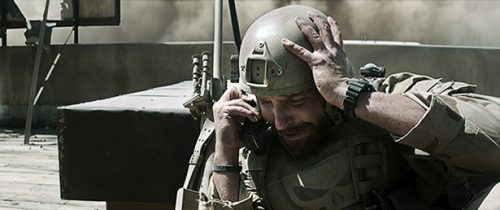
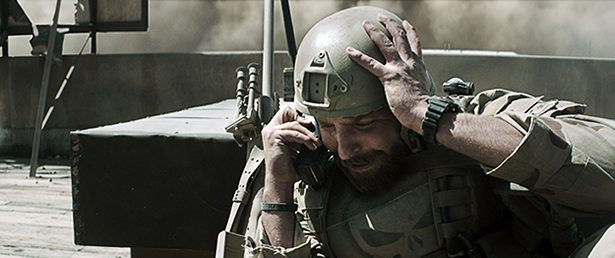
In American Sniper, director Clint Eastwood has found a subject that perfectly suits his considerable talents. Based on Navy SEAL Chris Kyle’s autobiography of the same name, the film tells the story of the deadliest sniper in U.S. military history, a man who found his calling, as well as his damnation, in four tours of duty in Iraq before returning home to attain some semblance of normality, however brief. Eastwood tells Kyle’s story with a precision that belies the emotional carnage increasingly taking place in the soul of this killer, played with furious restraint by Bradley Cooper.
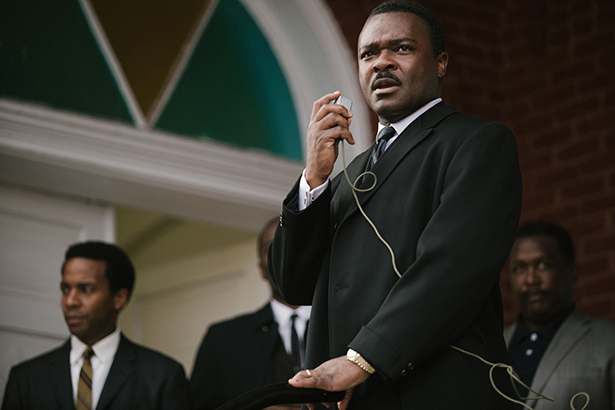
Selma follows Martin Luther King Jr. (David Oyelowo) at the start of 1965, in the months leading up to the passage of the Voting Rights Act. Director Ava DuVernay’s movie has a gloriously broad scope; she and screenwriter Paul Webb somehow stick close to King while keeping one eye on the horizon. Through details and references, the filmmakers create a sense of something bigger than King, bigger than Selma and bigger than one brief span of time. This would be a compelling film at any time, but right now it’s more than that. It’s vital.
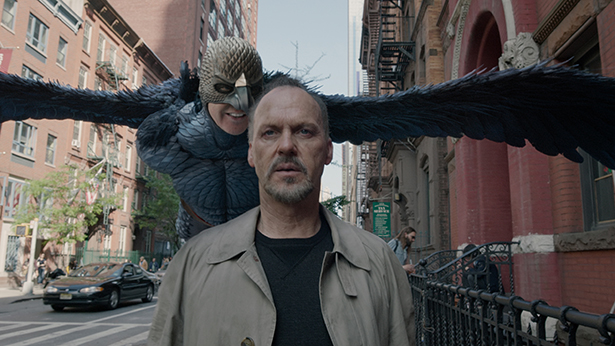
Birdman rests squarely on the shoulders of one put-upon fellow: Actor-writer-director Riggin Thomson (Michael Keaton) is struggling to open a Broadway adaptation of Raymond Carver’s “What We Talk About When We Talk About Love.” He’s got all the normal problems — needy actors, budgetary concerns — as well as an alter ego that speaks to him in the form of Birdman, the superhero character with which years ago he made his name (as Keaton himself did with Batman). The false dichotomy of art versus entertainment is just a distraction, a spare idea the film tosses in and then leaves alone. The only conflict it’s really interested in is one man versus himself: the part that soars and the part that’s always looking down, aware of how far there is to fall.
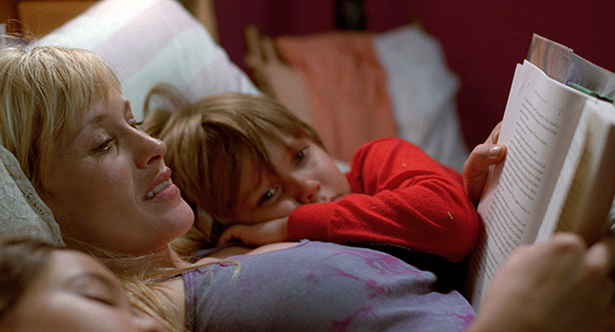
Boyhood travels through time differently: Over a span of 12 years, director Richard Linklater filmed his cast for a few days here, a few days there, capturing moments in the childhood of a boy named Mason — played throughout by Ellar Coltrane — and his family. The film flows so neatly from one moment to the next that it’s easy to forget what a risky endeavor the whole thing was. Nearly every scene in Boyhood is beautifully true to the moment it depicts, whether that moment involves teenage boys posturing toughness or a dad making his daughter cringe with a talk about condoms. Every year, Linklater and his actors did something beautiful. As a whole, the movie is observational, natural, likable — a ballsy project made life-sized by the mundane.
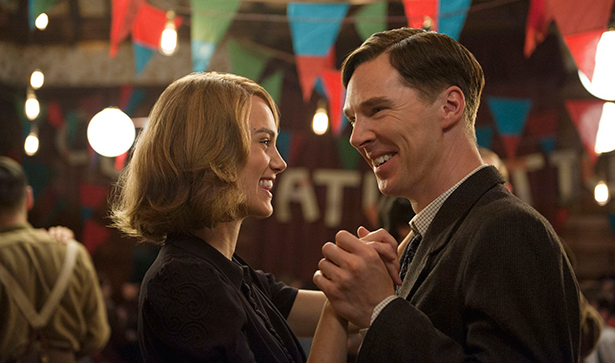
During WWII, codebreaker Alan Turing cracked the vital Nazi code called Enigma. The Imitation Game focuses on Turing and his staff as they push buttons and toss away pieces of paper, working to decipher the ever-changing code. The only person in the group who Turing (Benedict Cumberbatch) is nice to is bright young Joan Clarke (Keira Knightley), and the two are engaged briefly. Some years after the war, though, Turing was discovered to be gay and forced to choose between prison and chemical castration; The Imitation Game hardly touches this part of the story. As a tidy, good-for-you awards-season film, it just wants to portray the Turing that beat Enigma, and in that it does a perfectly reasonable job.
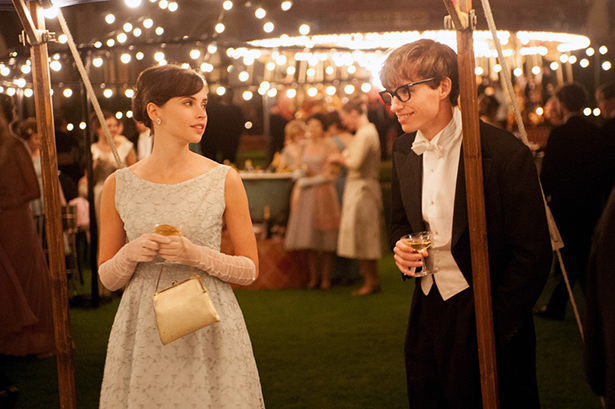
The Theory of Everything follows the love story of Stephen Hawking (Eddie Redmayne) and Jane Wilde (Felicity Jones), one of the world’s most famous physicists and the young scholar who becomes his first wife. They fall in love at Cambridge and Stephen is soon diagnosed with motor neuron disease (ALS). Jane firmly decides to stay with him. Redmayne and Jones are fantastic, but while building up to the part we’re all familiar with — when Hawking gives everyone the intellectual finger and writes A Brief History of Time — the film breezes past milestones, failing to give a sense of Hawking’s level of renown.
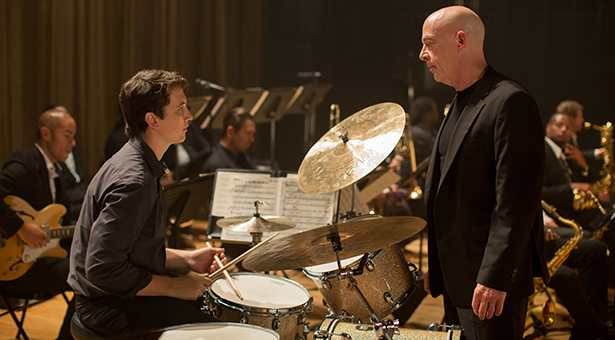
Whiplash tells the story of Terence Fletcher (J.K. Simmons), the tyrannical leader of the best jazz band in the finest music school in the country, and young, talented drummer Andrew Neyman (Miles Teller), who wants nothing more than to impress Fletcher. This isn’t a movie about mythologized genius, or a story that excuses cruelty when it comes in the pursuit of greatness; every triumph is tempered with the knowledge of what it took to reach that moment. Fletcher pushes, Neyman lashes back, and their duet rages on, right up to the unsettling, satisfying close.
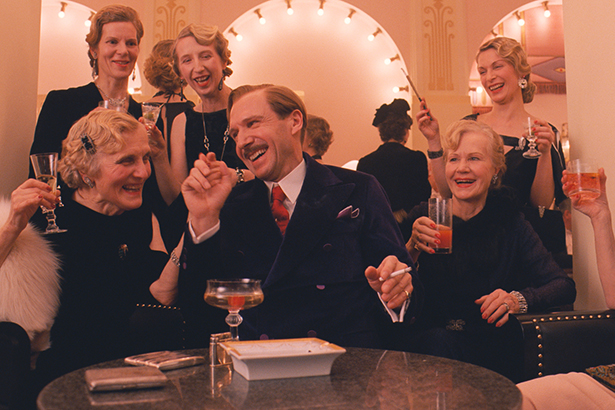
Wes Anderson’s Grand Budapest Hotel is a caper full of quirks, and quirky characters, including an underrated, droll Ralph Fiennes as the famous concierge M. Gustave; Tilda Swinton, too briefly, as a dead dowager; and Tony Revolori as the lobby boy taken under Gustave’s wing. Saoirse Ronan turns up as a capable young baker, but this is a boys’ club, if a delightful one. Adrien Brody and Willem Dafoe, for example, should play half-Goth more often.